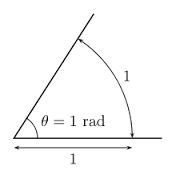记忆方法
为了记忆单词“angle”,可以采用视觉联想法。想象一个角度的形状——一个三角形或者直角边,因为“angle”意味着角度或角度度数。你可以想象这个形状在你的心中,每当看到或听到“angle”时,就会自然联想到这个图像,从而帮助记忆。
以上内容由AI生成, 仅供参考和借鉴
中文词源
angle 角
来自词根ang, 弯。可能与anger同源。
英语词源
- angle
-
angle: There have been two distinct words angle in English. The older is now encountered virtually only in its derivatives, angler and angling, but until the early 19th century an angle was a ‘fishing hook’ (or, by extension, ‘fishing tackle’). It entered the language in the Old English period, and was based on Germanic *angg- (source also of German angel ‘fishing tackle’).
An earlier form of the word appears to have been applied by its former inhabitants to a fishhook-shaped area of Schleswig, in the Jutland peninsula; now Angeln, they called it Angul, and so they themselves came to be referred to as Angles. They brought their words with them to England, of course, and so both the country and the language, English, now contain a reminiscence of their fishhooks. Angle in the sense of a ‘figure formed by two intersecting lines’ entered the language in the 14th century (Chaucer is its first recorded user).
It came from Latin angulus ‘corner’, either directly or via French angle. The Latin word was originally a diminutive of *angus, which is related to other words that contain the notion of ‘bending’, such as Greek ágkūra (ultimate source of English anchor) and English ankle. They all go back to Indo-European *angg- ‘bent’, and it has been speculated that the fishhook angle, with its temptingly bent shape, may derive from the same source.
=> english; anchor, ankle - angle (v.1)
- "to fish with a hook," mid-15c., from Old English angel (n.) "angle, hook, fishhook," related to anga "hook," from PIE *ang-/*ank- "to bend" (see angle (n.)). Compare Old English angul, Old Norse öngull, Old High German angul, German Angel "fishhook." Figurative sense is recorded from 1580s.
It is but a sory lyfe and an yuell to stand anglynge all day to catche a fewe fisshes. [John Palsgrave, 1530]
Related: Angled; angling. - angle (n.)
- "space between intersecting lines," late 14c., from Old French angle "angle, corner," and directly from Latin angulus "an angle, corner," a diminutive form from PIE root *ang-/*ank- "to bend" (cognates: Greek ankylos "bent, crooked," Latin ang(u)ere "to compress in a bend, fold, strangle;" Old Church Slavonic aglu "corner;" Lithuanian anka "loop;" Sanskrit ankah "hook, bent," angam "limb;" Old English ancleo "ankle;" Old High German ango "hook"). Angle bracket is 1875 in carpentry; 1956 in typography.
- Angle
- member of a Teutonic tribe, Old English, from Latin Angli "the Angles," literally "people of Angul" (Old Norse Öngull), a region in what is now Holstein, said to be so-called for its hook-like shape (see angle (n.)). People from the tribe there founded the kingdoms of Mercia, Northumbia, and East Anglia in 5c. Britain. Their name, rather than that of the Saxons or Jutes, may have become the common one for the whole group of Germanic tribes because their dialect was the first committed to writing.
- angle (v.2)
- "to move at an angle, to move diagonally or obliquely," 1741, from angle (n.). Related: Angled; angling.
权威例句
- 1. The helicopter turned at an awful angle before righting itself.
- 直升机在恢复平稳之前倾斜得很厉害。
- 2. Tourists were scrambling over the rocks looking for the perfect camera angle.
- 游客们在正爬上岩石寻找最佳的拍摄角度。
- 3. The tree was leaning at a low angle from the ground.
- 那棵树倾斜得非常厉害。
- 4. The body was twisted, its legs at an awkward angle.
- 身体扭曲变形,双腿弯成别扭的角度。
- 5. An iron bar stuck out at an angle.
- 一根铁棍斜伸出来。

